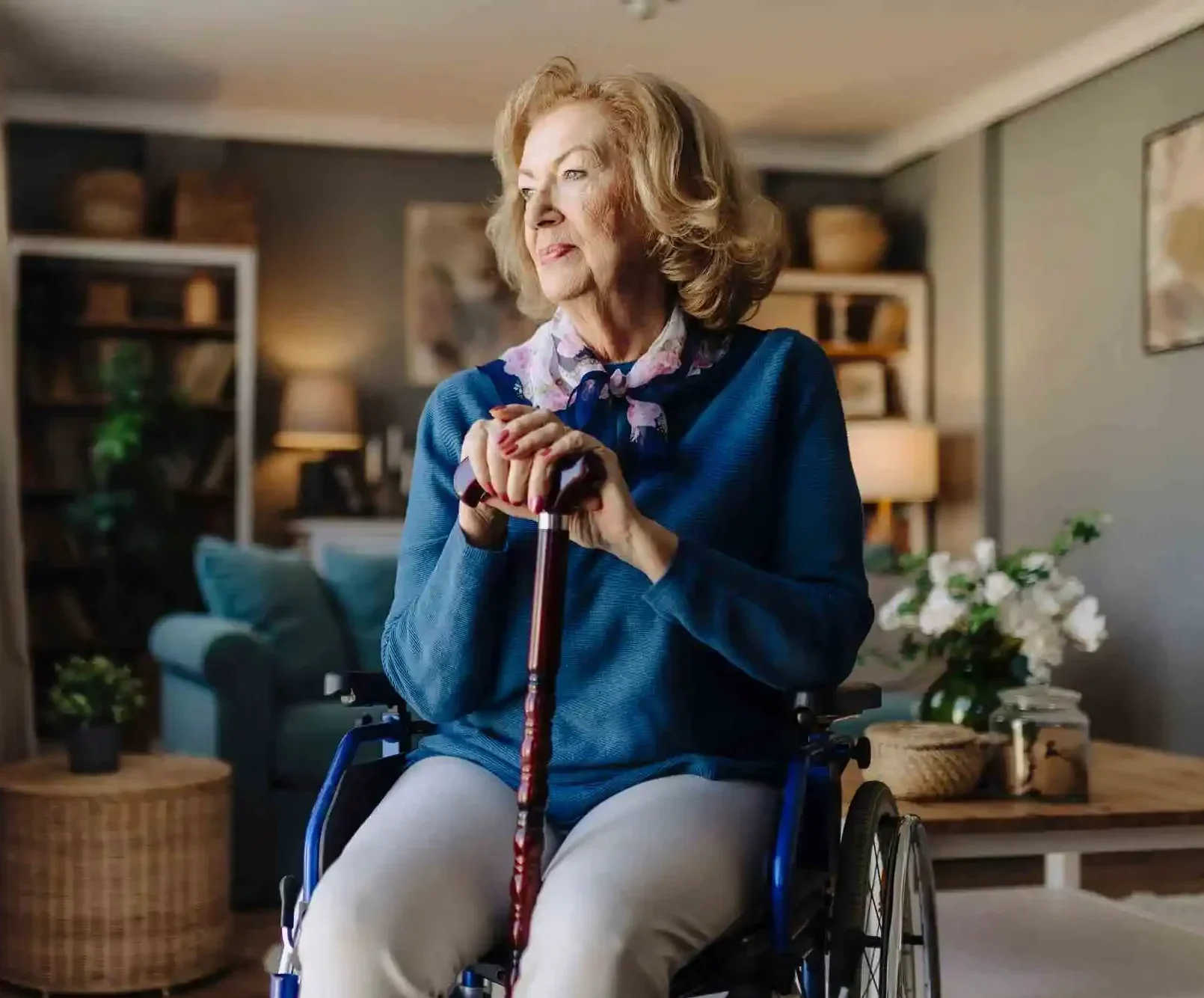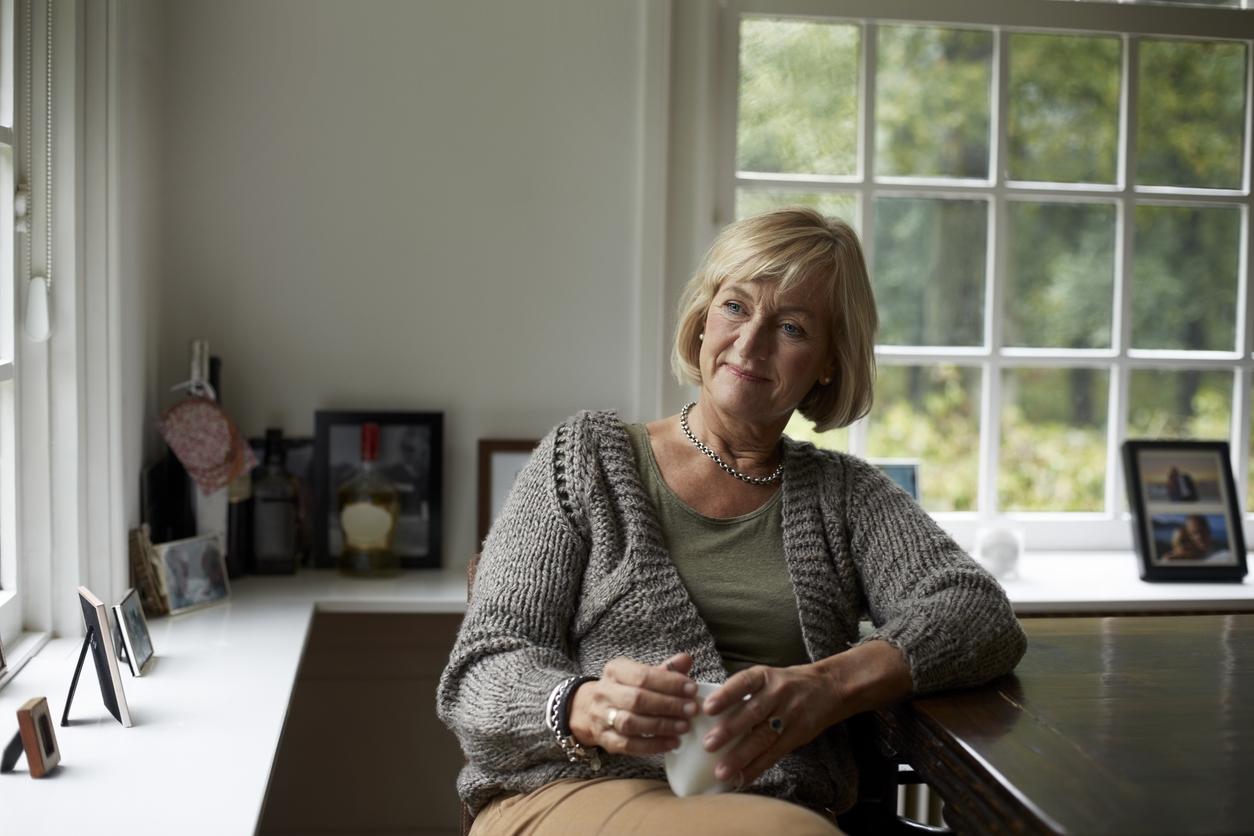Motor Neurone Disease (MND) care at home
Our outstanding Motor Neurone Disease (MND) care is personalised to your needs, empowering you to manage symptoms and maintain independence at home. As leaders in MND care across London, we are ready to help you arrange exceptional care immediately.

What does Motor Neurone Disease (MND) care at home include?
Motor Neurone Disease (MND) care at home includes a multifaceted approach aimed at maintaining an individual’s quality of life and independence. This type of care focuses on managing the physical and emotional symptoms of the disease, providing practical support, and adapting to the client’s evolving needs. The goal is to empower clients and their families, ensuring comfort and dignity throughout their journey with MND.
Homecare for MND can help manage a wide range of symptoms, including muscle weakness, mobility issues, speech and swallowing difficulties, and respiratory changes. Our specialist care team can provide continuous support to control these symptoms at a level that is comfortable and empowering for the client.
Symptom and mobility management
A core component of MND home care is the effective management of symptoms, which is crucial for improving a patient’s quality of life. The care team, which may include nurses, carers, and therapists, works to address discomfort and distress. This often involves close collaboration with the client’s medical team to ensure they have the most appropriate care plan, which can include assistance with mobility, positioning, and exercises to maintain strength for as long as possible.
Other aspects of at-home MND care
Communication support
Caregivers can provide assistance with communication aids and techniques as speech becomes more challenging, ensuring the client can continue to express their needs and wishes.
Assistance with daily living
Support extends to include help with daily activities such as eating, drinking, and personal care, ensuring the client maintains their dignity and comfort in their own home.
Respiratory and nutritional support
As the disease progresses, caregivers can assist with non-invasive ventilation and feeding tubes, helping to manage respiratory symptoms and nutritional intake to promote wellbeing.
Emotional and psychological support
Care extends beyond physical symptoms to include emotional and psychological support for both the client and their family, helping them navigate the emotional challenges of living with MND.
Contact Us
Why choose us?
Our outstanding Motor Neurone Disease (MND) care is designed to provide comprehensive support for you or your loved one. Our approach focuses on empowering you to manage symptoms and maintain independence from the comfort and familiarity of your own home.
Comprehensive care and support
At Cavendish Homecare, our highly skilled registered nurses and carers provide a range of services tailored to the unique journey of each client with MND. Our clinical expertise ensures the highest level of care and support.
Pain and medication management
Our expert team can provide support with pain control and medication management, ensuring comfort and ease.
Mobility and personal care
We offer essential support with mobility and personal care, helping to maintain dignity and independence.
Collaborative care
We work closely with other healthcare professionals involved in your care to ensure a seamless and unified approach.
Bespoke care plan
We create a personalised care plan that is tailored to your unique needs, ensuring your comfort and wellbeing are at the forefront of everything we do.
Flexible care solutions
We offer a range of flexible care options to suit your needs and lifestyle. Whether you require a visiting service for specific tasks or continuous support, we are here for you.
Live-in care, day/night support, or visiting services
Our services can be arranged to provide support whenever you need it, from short visits to continuous live-in care.
Support with equipment
We can provide advice and assistance on acquiring necessary hospital equipment, such as beds and moving and handling equipment, to ensure you have everything you need to be comfortable at home.
Fully regulated by CQC
As a provider fully regulated by the Care Quality Commission (CQC), Cavendish Homecare sets the benchmark for quality and safety. When choosing care, we always advise checking a provider’s CQC registration and inspection reports, which are publicly available. Our commitment to exceptional care is independently verified through their rigorous inspections, evidenced by our ‘Outstanding’ rating specifically for care and an overall ‘Good’ rating. This gives you complete confidence in our professionalism, compassion, and accountability.

Contact Us
I want to find out more about…
FAQ
MND care at home enables you to preserve your independence and comfort for as long as possible. We understand the significance of maintaining familiarity and safety of your own home an our qualified nurses and carers are ready to assist you with activities of daily living, such as personal care, medication management, dressing and preparing meals. This enables you to enjoy time with your loved ones while having a peace of mind knowing your care needs are taken care of.
Early symptoms can include: weakness in your ankle or leg, slurred speech, which may develop into difficulty swallowing some foods, a weak grip, muscle cramps and twitches, weight loss, arms or leg muscles may have become thinner over time, difficulty stopping yourself crying or laughing in inappropriate situations.
The various types of MND cause similar symptoms and have three stages: early, middle, and advanced. The early stage symptoms typically begin with the arms and legs, the mouth and the respiratory system. During the middle stage they symptoms may be difficulty moving, joint pain, muscle shrinkage, drooling as a result of problems with swallowing and difficulty in breathing.
In the advance stage, people needs assistance with moving, eating, breathing, or a combination of these. The condition may become life threatening and breathing problems are the most common cause of death. The progress of the disease is at different speed and varies in severity.
As MND can be swiftly progressive, it is essential that people with the condition are presented with an option of referral to specialist palliative care services at an optimal time. Liaising with palliative care and specialist services can offer a useful source of support. Should discussions take place around preference for end of life care for motor neurone disease, an advanced personalised care plan should be developed.
MND is caused by a problem with cells in the brain and nerves called motor neurones. These cells progressively lose their function over time, the cause of this is unknown. Having a close relative diagnosed with motor neurone disease or related condition called frontotemporal dementia, can slightly increase your risk of developing one of these conditions.
Yes, there are several charities that provide vital support for people with Motor Neurone Disease (MND) and their families in the UK. They offer a range of services, including financial assistance, practical support, and emotional guidance, and play a crucial role in improving the lives of those affected by MND.
Here are some of the main charities that provide support:
The Motor Neurone Disease Association (MNDA): This is the largest charity in England, Wales, and Northern Ireland dedicated to improving care, research, and support for people with MND. They offer a wide range of services, including a helpline, support groups, and information on living with MND.
My Name’5 Doddie Foundation: Founded by Scottish rugby legend Doddie Weir, this charity raises funds for research into the causes of MND and to find a cure. They also provide grants to people living with the disease.
What our clients say about us….
The enquiry process - What to expect
Initial Enquiry
An initial enquiry is taken when you call on behalf of yourself or someone else. An initial enquiry can be via a phone call, submitting a contact form or an email. Your enquiry is then picked up by the office team who will gather the information and pass it through to one of our nurse managers.
Call Back from Nurse Manager
One of the experienced nurse managers will give you a call back to discuss the needs in more detail and to provide their expert recommendation on the care that may be required. They will then discuss with you, what Cavendish Homecare may be able to provide, what the cost is, and what timescale we would be able to commence your care.
Selection of Staff
Once an initial agreement is established, the nursing manager will start working with the bookings team to determine the most suitable nurse and/or carer are best matched with your needs.
Proposed Agreement
Following the tailored care recommendation and the selection of staff. We ensure you (the client) are happy with the proposed course of action and the care is able to commence. In some cases, an assessment visit may be required and this will be undertaken by one of our nurse managers.

Active Client
You will begin receiving outstanding homecare from our team, tailored to your needs. Your care plan will be under constant review to ensure the correct level of care is addressing your needs and being provided at all times.
An initial enquiry is taken when you call on behalf of yourself or someone else. An initial enquiry can be via a phone call, submitting a contact form or an email. Your enquiry is then picked up by the office team who will gather the information and pass it through to one of our nurse managers.
 Back
Back








